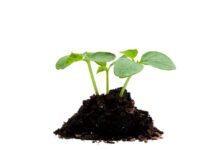by Deron Johnston
Recently, there was a massive recall on romaine lettuce across North America because of possible contamination with E. coli. A particularly nasty strain of E. coli, called “E. coli 0157”, was thought to be the guilty party and may be responsible for impacting twenty-seven people in Canada (specifically in Ontario, Quebec and New Brunswick) and as many as fifty-two Americans across multiple states.
The U.S. Centers for Disease Control and Prevention continue to discourage people from eating romaine lettuce that was harvested from the “central Coastal growing regions of Northern and Central California”, where the suspected contamination is believed to have originated. This is not the first time that romaine lettuce has been the source of an E. coli outbreak this year. Another incident happened in the Spring and into the Summer in the U.S.
Due to the huge volume of food handled by some large-scale food operations, this means that any problems that arise can literally impact thousands of people’s health, not to mention the money lost and food that gets wasted due to mass food recalls. Unfortunately, it may take days or weeks to trace a problem back to the original source, as there may be multiple producers involved as well as other factors. The extent of the negative effect on public health is also difficult to determine, because not everyone will report their illness, visit a doctor, or will know that a type of food that they consumed may be responsible for their illness.
Through all of this wasted food, money lost because of wasted food, and potential negative health outcomes for humans, is it not time to consider moving away from large-scale food systems to smaller regional systems? This is not to say that our current food system is unsafe, or not working. It just appears to be logical that a local food system that handles less food might make it much easier to track problems to the source and could result in less waste. Just like large food systems, local food producers are also closely monitored by the health unit, which has strict standards on the handling, preparation and storage of food, along with regular and surprise inspections.
Food security is an issue that more and more people are becoming aware of. Food security, as defined by the United Nations’ Committee on World Food Security, is the condition in which all people, at all times, have physical, social and economic access to sufficient safe and nutritious food that meets their dietary needs and food preferences for an active and healthy life. Mass food recalls from this type of contamination can put our food security at risk and point to the potential vulnerability of these large-scale food systems.
The saying: “Know your farmer, know your food”, is not just a catchy slogan used by the Kemptville Farmers’ Market, but also an important concept to consider when making decisions about how to feed yourself and your family. Speaking of farmers’ markets, if you’re at a booth, asking a question about one of their food products, chances are that the person you’re talking to either picked it, made it, or grew it, and quite possibly all three. How’s that for tracing things back to the source?








